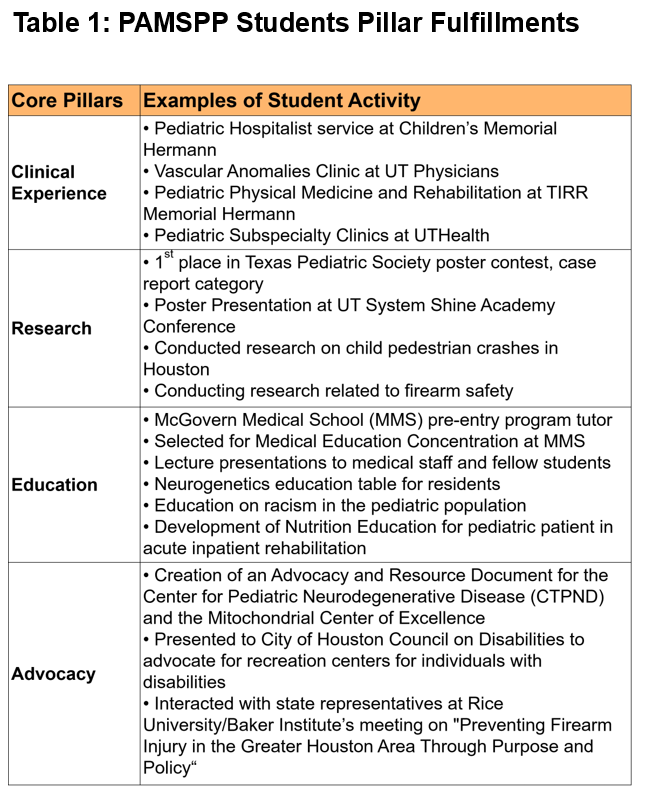Medical Education: Medical Student
Medical Education 2: Student 1
468 - Developing Well-Rounded Medical Students: The Pediatric Academic Medicine Summer Preceptorship Program
Publication Number: 468.123
.jpg)
Autumn Atkinson, MD (she/her/hers)
Assistant Professor
McGovern Medical School at the University of Texas Health Science Center at Houston
Houston, Texas, United States
Presenting Author(s)
Background:
The summer between a medical student’s first and second year provides a unique opportunity to explore individual interests in medicine. However, the summer programs currently offered are dedicated to either clinical exposure or research experience. To fill this gap and provide early exposure to academic medicine, we developed the Pediatric Academic Medicine Summer Preceptorship Program. This program incorporates clinical and scholarly experiences within academic medicine while introducing students to advocacy and education.
Objective: 1. Demonstrate the frame work and successes of a multi-focused summer program for medical students aimed at academic pediatrics.
2. Empower attendees to form similar mentoring relationships and programs at their institutions for medical student and personal academic growth.
Design/Methods:
Each student partners with a pediatric faculty mentor and develops an individualized program based on their goals within the program’s core pillars of clinical exposure, scholarly activity, education, and advocacy. Within the clinical time, the student works with both inpatient and outpatient pediatric faculty, as well as selects cases for presentation and/or develops a scholarly question for their research project. During the program, the student participates in or leads an advocacy project. Lastly, the student is exposed to a physician’s role as an educator and in turn, creates an opportunity to teach others.
Results:
PAMSPP was piloted in 2020 with one student-faculty pair and now has grown into a departmentally funded program, preparing for its fourth summer. The students mentored by pediatrics faculty experienced a variety of clinical activities. Academically, our students produced several abstracts, presented advocacy, quality improvement, and research projects at the local, regional, and national. Furthermore, a recent quality improvement study conducted by one of PAMSPP’s students showed that 76% of medical students indicated that their ideal summer program would consist of most to all of the pillars PAMSPP. From our pilot mentorship, the faculty-student pair produced five abstracts presented at regional and national conferences over their three-year relationship. The beta mentorships continue to be academically productive with multiple national level abstracts and publications.
Conclusion(s):
PAMSPP builds mentorship, provides early exposure to academic medicine, and equips students with research, clinical, teaching, and advocacy skills. Since few published academic medicine programs for students exist, we have the unique opportunity to model a successful summer program.
